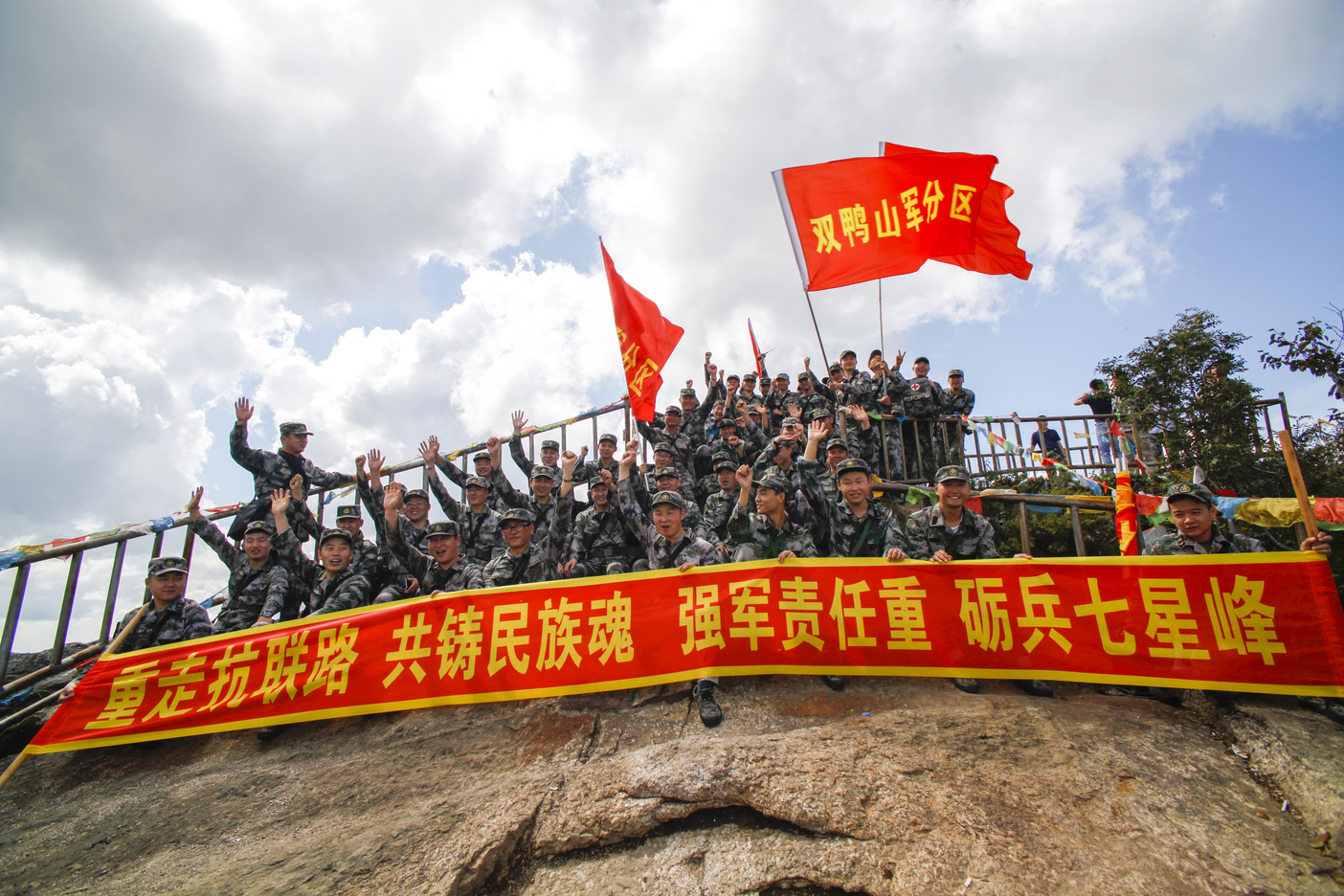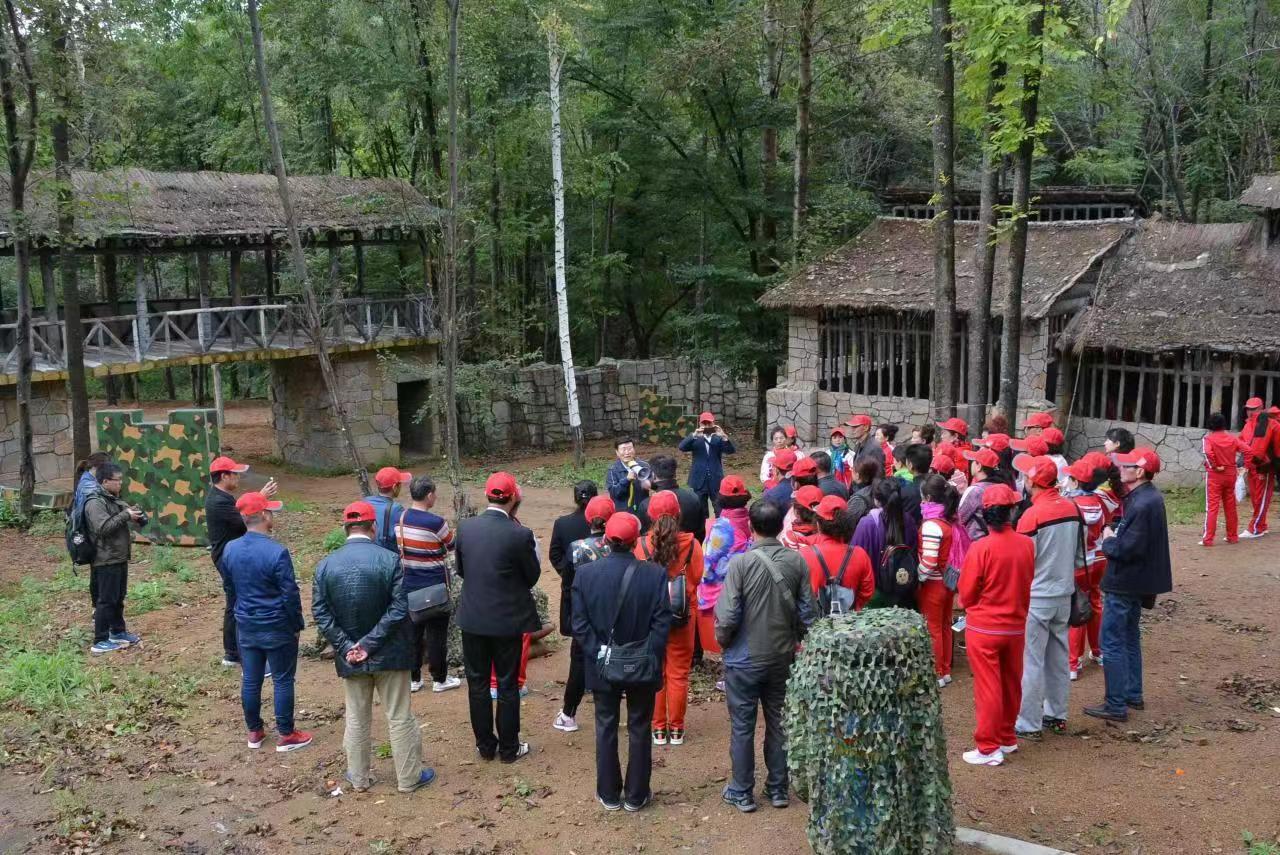

Among the numerous anti Japanese bases in Heilongjiang Province, the Red Historical and Cultural Site was once the largest logistics base of the Northeast Anti Japanese Army due to its high mountains, dense forests, the presence of tigers and wolves, and the lack of human travel. In May 1936, the Anti Japanese Allied Army established secret camps, military factories, and clothing factories in Qixinglazi to persist in the long-term resistance war, arming our anti Japanese forces and making outstanding contributions to the anti Japanese struggle in Northeast China. There are currently 8 caves in which weapons, sewing machine heads, and some daily necessities used by anti Japanese soldiers were discovered, and they have been preserved in the Heilongjiang Provincial Museum. The ruins inside the cave are well preserved, and at the foot of the northern slope of Qixing Peak, there are memorials for the anti Japanese hero Jin Gen and Xu Guanghai's sacrifice site, each with one piece.
In the past, the Seven Star Peak of the Anti Japanese Army Site was densely populated with tigers and wolves. It was an ideal natural barrier for the Anti Japanese Army and one of the largest logistics bases for the Northeast Anti Japanese Army. Revolutionary teams such as the Sixth, Eighth, and Eleventh Armies of the Anti Japanese Alliance, as well as a large number of revolutionaries such as Li Zhaolin and Chen Lei, have been active here, leaving behind many touching patriotic battle stories. In the autumn of 1936, Qi Zhizhong, the commander of the 11th Army of the Anti Japanese United Army, established the "Seven Star Lazi Arsenal" here, which was capable of repairing handguns, machine guns, submachine guns, and hand grenades. He also established a bedding factory and school, arming our anti Japanese forces and making outstanding contributions to the anti Japanese struggle in Northeast China. In the winter of 1937, Jin Gen, the director of the political department of the First Division of the Eighth Army of the Anti Japanese Alliance, was unfortunately brutalized by traitors in the Qixinglazi Mountain during the Japanese army's intensified campaign against the anti Japanese alliance. He was 36 years old at the time. The legion camp and arsenal of that year were burned down by the Japanese army, and only 8 stone caves under the cliff were preserved. Weapons, sewing machine heads, and some daily necessities used by anti Japanese soldiers were found in the caves, which have been preserved in the Heilongjiang Provincial Museum. The ruins inside the cave are well preserved. On the Seven Star Peak, there is a poem commemorating the anti Japanese martyrs: "Eighty brave soldiers climb the cliff peak, fight hard at the mountain pass day and night. Defeat the three thousand winding bandits, and the martyrs are stained with blood on the seven stars. The middle bones stand tall and the sky is filled with heroes, and tears are shed on the green mountains to worship the heroes. Li Min, a veteran soldier of the Anti Japanese League (former Vice Chairman of the Heilongjiang Provincial Federation of Trade Unions, Director of the Provincial People's Committee, and Vice Chairman of the 5th and 6th CPPCC of Heilongjiang Province), visited this mountain in 1981 to commemorate the heroes of the Anti Japanese War. At the foot of the northern slope of Qixingfeng Mountain, there are two monuments standing on the side of a natural small stone village on the mountainside of Qixingfeng Mountain. They were established in 2003 to commemorate the brave sacrifice of Xu Guanghai, the commander of the First Division of the Sixth Army of the Anti Japanese Army, and Martyr Jin Gen, the director of the Political Department of the Eighth Army of the Anti Japanese Army, who fought with the enemy in the Anti Japanese War. The stone walls on both sides of the monument are engraved with the words "Xu Guanghai Martyrs Sacrifice Site" and "Jin Gen Martyrs Sacrifice Site".
